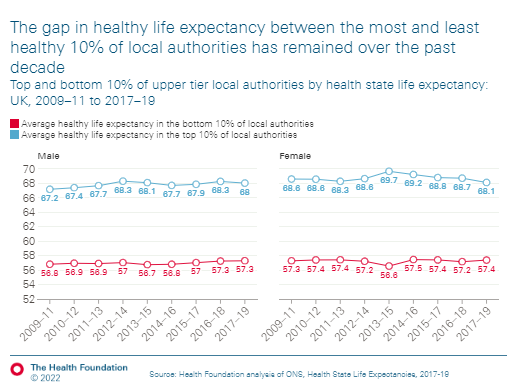Saying social care is in crisis is about as uncontroversial as it gets.
In @Telegraph today,I try to highlight just how important front-line social care workers are & argue that the social care action plan shows just how desperately we need LT reform 1/
telegraph.co.uk/global-health/…
In @Telegraph today,I try to highlight just how important front-line social care workers are & argue that the social care action plan shows just how desperately we need LT reform 1/
telegraph.co.uk/global-health/…
No £-wall, but here it is in tweets.
It's hard not to be moved by @captaintommoore's 100th birthday walk for @NHSCharities. Thousands have done some amazing stuff to show support for NHS front-line. (NB whether there should be NHS charities is an altogether different article) 2/
It's hard not to be moved by @captaintommoore's 100th birthday walk for @NHSCharities. Thousands have done some amazing stuff to show support for NHS front-line. (NB whether there should be NHS charities is an altogether different article) 2/
But the other COVID front-line is just as important and admirable. 1.5m people providing around the clock social care to our most vulnerable friends, family, and neighbours. 3/
So the launch of last week's Adult Social Care Action Plan was accompanied by a series of ministers and officials scrambling to assert that Thursday evening’s ritual #ClapForCarers isn’t just for the NHS. Social care workers really do matter. 4/
assets.publishing.service.gov.uk/government/upl…
assets.publishing.service.gov.uk/government/upl…
There are over 3,000 care homes with outbreaks. Care home deaths are rising. My health protection work is dominated by calls from social care - staff trying to do their best amidst uniquely challenging combinations of of staff sickness, PPE probs, resident deaths, staff deaths.5/
The action plan is the gov's answer to some of these probs. But it all feels like a massive afterthought.
Funding is welcome, plans for PPE and testing are great, some more staff - tick, plus again it states need for LT plan with cross-party talks ‘at the earliest opportunity’ 6/
Funding is welcome, plans for PPE and testing are great, some more staff - tick, plus again it states need for LT plan with cross-party talks ‘at the earliest opportunity’ 6/
But none of the problems faced are unexpected. We know it's complex, we know there are over 25,000 indepedent providers. We know it's been chronically underfunded. 7/
We know this is a workforce often with limited clinical/PPE training, where 30% of front-line carers are on the minimum national living wage, where one in four are on zero-hours contracts, and where staff turnover rates are at 30%. 8/
skillsforcare.org.uk/adult-social-c…
skillsforcare.org.uk/adult-social-c…
An additional 20,000 staff will do little to overcome the predictably high COVID-related staff sickness rates on top of 120,000 staff vacancies. 9/
health.org.uk/publications/l…
health.org.uk/publications/l…
And a "CARE" brand has a long way to go before it matches the sense of collective national pride that underpins team-NHS.
Esp not until social care workers enjoy the same types of terms and conditions as their equivalent colleagues in the NHS; 10/
Esp not until social care workers enjoy the same types of terms and conditions as their equivalent colleagues in the NHS; 10/
probably not until the @CareWorkersFund can galvanise members of the public to raise funds to support the front-line in the same way as NHS Charities Together; 11/
and if anything’s going to make social care feel like the NHS’ poor relation, it’s the government needing to put in print that it will publicly acknowledge the sector’s value. 12/ 

COVID-19 has brought the implications of successive governments’ failure to implement a long-term plan for social care into sharp relief.
Some of the things that could be done have been written about again and again.
It's not hard. It's political. 13/
health.org.uk/news-and-comme…
Some of the things that could be done have been written about again and again.
It's not hard. It's political. 13/
health.org.uk/news-and-comme…
So if nothing else, having a “CARE” badge provoking national debate may at least increase public awareness of a sector in desperate need of long-term reform. But the most important question remains: will @GOVUK @10DowningStreet finally take notice and act? 14/
Thanks to @Telegraph @TelGlobalHealth and @PaulNuki for turning this piece around so quickly, and @HealthFdn @pstilwell for supporting. 15/end
and please do have a read and comment @MattHancock @Helen_Whately @Jochurchill4 @JonAshworth @BorisJohnson @Keir_Starmer @leicesterliz @DHSCgovuk @Jeremy_Hunt
• • •
Missing some Tweet in this thread? You can try to
force a refresh

























